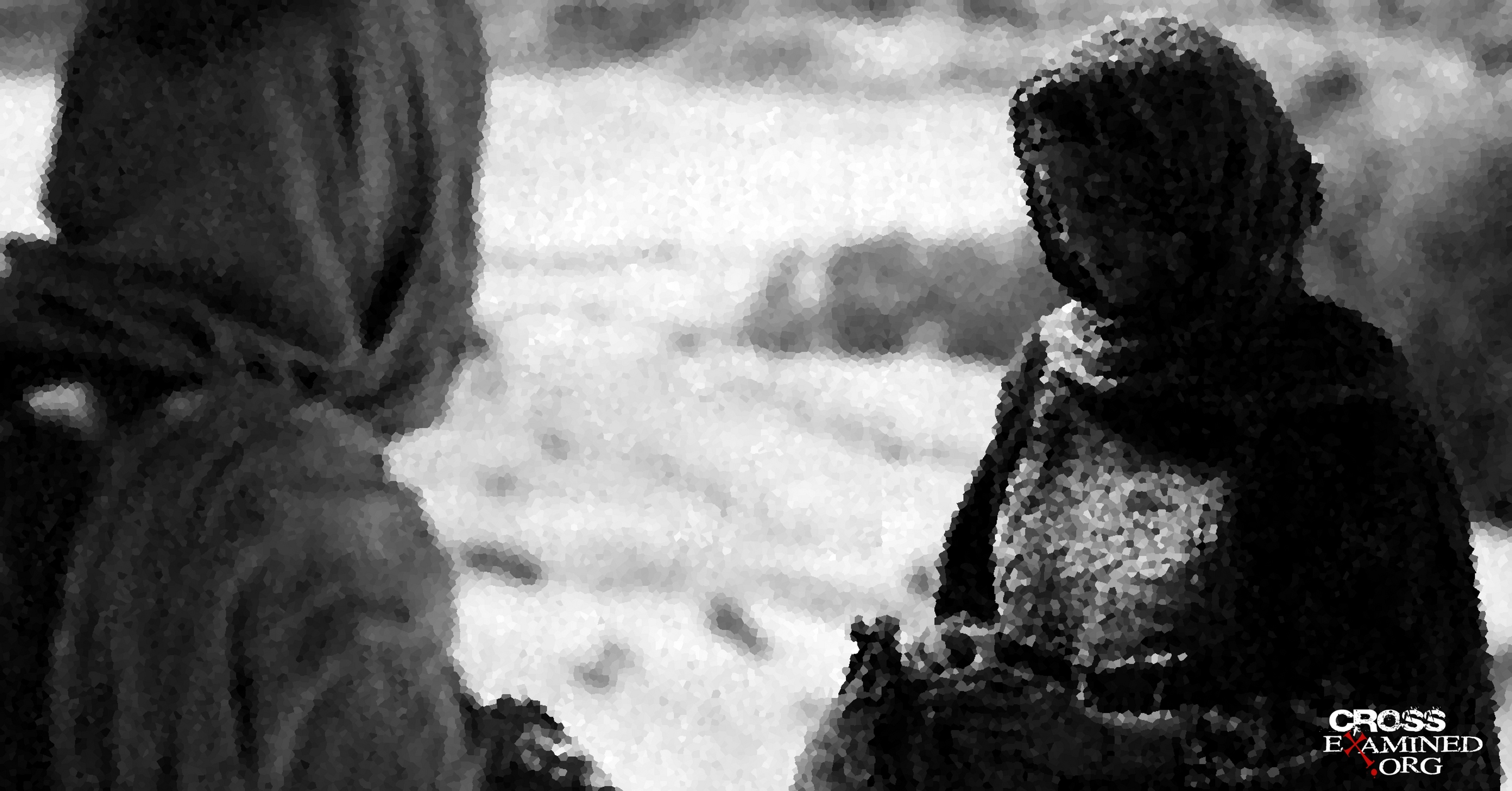What Babylon Teaches The Church About Discipleship
When you hear the word “disciple” does your mind go back to the first century where a group of twelve men followed Jesus and helped him pass out baskets full of loaves and fish? The word “disciple” is often associated with Christianity, and for good reason. The Great Commission in Matthew 28:19 commands every Christian to “go out and make disciples of all nations.” It’s no wonder that people’s idea of discipleship is linked only to religious groups.
My goal isn’t to change your mind that discipleship is a must when it comes to Christianity. My goal is to get you to think more deeply when it comes to what it means to disciple and be discipled. I’ll start with the claim that discipleship is not isolated to Christianity. And I’ll prove this by using an unconventional source – Babylon. In fact, I am going to make the case that Christian or not, you are somebody’s disciple. Your neighbor is somebody’s disciple. That person going through the Starbucks drive-thru? Yep, they’re somebody’s disciple too.
We can learn a lot about discipleship from Babylon.
Some might say Babylon is one of the most unconventional sources to teach us about discipleship. I agree, but when it comes to discipleship, Babylon had it down. They knew how to disciple and they did it well. Before we go any further, we first have to define what it means to be a disciple. A disciple is a follower or student of a teacher or philosopher. That means we are all somebody’s disciple because we all follow the ideas and beliefs of someone else. In essence, we have been and are being discipled in order to have arrived at the beliefs we hold.
In order to understand the Babylonian influence and culture during the time of Judah’s exile, let’s visit Daniel, chapter 1.
Babylon was under the rule of King Nebuchadnezzar from around 605-562 BCE. It was a thriving city in Mesopotamia located on the Euphrates. Babylon is one of the most famous cities of antiquity, known for its symbolism of wickedness from Genesis to Revelation. In Genesis, Babylon is known as the location for the Tower of Babel. In Revelation, we see Babylon suffer the final judgment and wrath of God. So if you’re thinking, “What can Babylon possibly teach us about discipleship,” let me remind you – discipleship is not a word isolated to Christianity.
Babylon was intentional.
What does it mean to be intentional? It means you do things with and for a purpose. Babylon was intentional. Take a look at Daniel 1:1-4 and you’ll see that Nebachudnezzer strategically chose the young men of Judah. These weren’t just ordinary teenage boys. They were of royal descent; they were nobility. They were wise, good looking, and teachable. Babylon did not target the older population to serve the king. Babylon knew the minds of the young were moldable, impressionable, and these young men could be trained to learn the ways of Babylon.
Babylon understood the optimal time to make disciples and they pounced on it. The intent of Babylon was to win the minds of the young for greater service to the king.
Babylon was immersive.
Immersive means to be surrounded by. The training Babylon put these young men through was immersive with no room for flexibility. Verses 4-6 of chapter one gives us insight into this immersive discipleship training when it tells us the young men had to learn the language and literature of the Chaldeans. Not only did they learn to read and speak the language, they ate the food and wore the clothes. This immersive experience lasted for three years before they could even step foot into service to the king.
Babylon was not neutral.
Babylon left no room for neutrality. Discipleship is never neutral. Babylon proved this when they changed the names of the young men from their given Hebrew names to a new Babylonian name that gave tribute to the gods of the culture. For Babylon, it was not enough that these young men lived among them. They had to become one of them. Babylon forced the young boys to conform to the culture and forget the ways of their parents. But isn’t that the whole goal of discipleship – the student follows the teacher until the student becomes the teacher? Really, you can’t blame Babylon for their tactics. That’s just the way of discipleship.
What is Christian Discipleship?
I can go on and on about what Christian discipleship is, but I’ll spare you the details and make it short: it’s intentional, immersive, and it is not neutral. Yes, you read that right. Christian discipleship looks like Babylon’s discipleship. In fact, all discipleship does. Yes, Jesus commands us to go out and make disciples, but doesn’t that make you wonder what Christian discipleship actually entails and what makes it different from Babylon? In all four gospels, we see where the discipleship of the twelve was intentional, immersive, and not neutral.
Intentional and Immersive
Jesus intentionally chose the twelve (John 6:70). The twelve lived with Jesus, followed Jesus, and was part of His ministry for three and a half years. They witnessed storms ceasing at His word, blind men seeing, dead men rising, religious men trying to trap Him in His words, and the correction of their hard hearts and closed minds (Mark 8:21). They were privileged to get the inside scoop because after Jesus spoke in parables to the crowds they received special instruction behind the scenes (Mark 8). The timing of their training was intentional and so was the method of their training.
Jesus was not neutral. He watched many disciples walk away when they could not fathom the thought of eating His flesh and drinking His blood (John 6). He said He was the only way to the Father, calling all other religions and belief systems false (John 14:6). And Jesus told His disciples they could not have more than one master (Matt 24-26). In other words, He wasn’t neutral and neither was their discipleship training.
You are somebody’s disciple.
Since discipleship is not isolated to Christianity, that means discipleship can come from anyone passing on information and knowledge from one mind to the other. All discipleship involves education, and education is indoctrination. We must reconcile that in order to launch into the most important question that comes after it: who is discipling you? Who is discipling your kids? Because you are somebody’s disciple and so are they.
The days of Babylon might be a thing of the past but Babylon is still a representation of the secular culture and its wickedness today. Babylon is anything that sets itself up in the stead of God and no one understands discipleship better than Babylon, not even the twenty-first century church. If we did, we would understand that in discipleship, there is no room for compromise.
Who did it better?
After all of this, I bet you’d expect me to say we should follow Babylon’s lead in making disciples. I’m not. Although the plan of Christian discipleship looks the same as Babylons, the doctrine makes it different. Christians share the one true God, whereas Babylon does not. The goal of Christian discipleship is so that the good news of the gospel may reach the ears of all people in every nation. The goal of Babylon’s discipleship is so you will serve the god of the age and lose yourself in service to the king.
No, don’t follow the lead of Babylon. The answer to discipleship is found in the response of Daniel and his friends when faced with the temptations of the Babylonian culture. The text reads, “Daniel purposed in his heart that he would not defile himself with the portion of the king’s delicacies.” Daniel remained committed to the one true God. He did not waver in his traditions and customs, although I’m convinced the temptation was overwhelming.
One might wonder why. Why would Daniel and his friends resolve not to compromise? How could they withstand the temptation of Babylon and not crack under the pressure? I can tell you why – they were already somebody’s disciple. Before they left Judah, under the intentional, immersive, and unwavering training of their parents, they learned how to be a disciple of the one true God. How do I know? Because we are all somebody’s disciple. Even Babylon knows this.
Sign your kids up for the next round of Let’s Get Real: Examining The Evidence For God that begins in January, 2024.
Recommended resources related to the topic:
Intellectual Predators: How Professors Prey on Christian Students by Frank Turek (mp4 Download) (mp3) (DVD)
Tactics: A Game Plan for Discussing Your Christian Convictions by Greg Koukl (Book)
Jesus, You and the Essentials of Christianity by Frank Turek (INSTRUCTOR Study Guide), (STUDENT Study Guide), and (DVD)
Counter Culture Christian: Is the Bible True? by Frank Turek (Mp3), (Mp4), and (DVD)
__________________________________________________________________________________________________________________________
Shanda Fulbright is a credentialed teacher and has a certificate in Christian Apologetics from Biola University, a certificate from the CrossExamined Instructor’s Academy as well as several certificates from Online Christian Courses. She hosts Her Faith Inspires podcast where she takes cultural issues and aligns them to biblical truth. You can read her blogs and find out more about her at shandafulbright.com.











